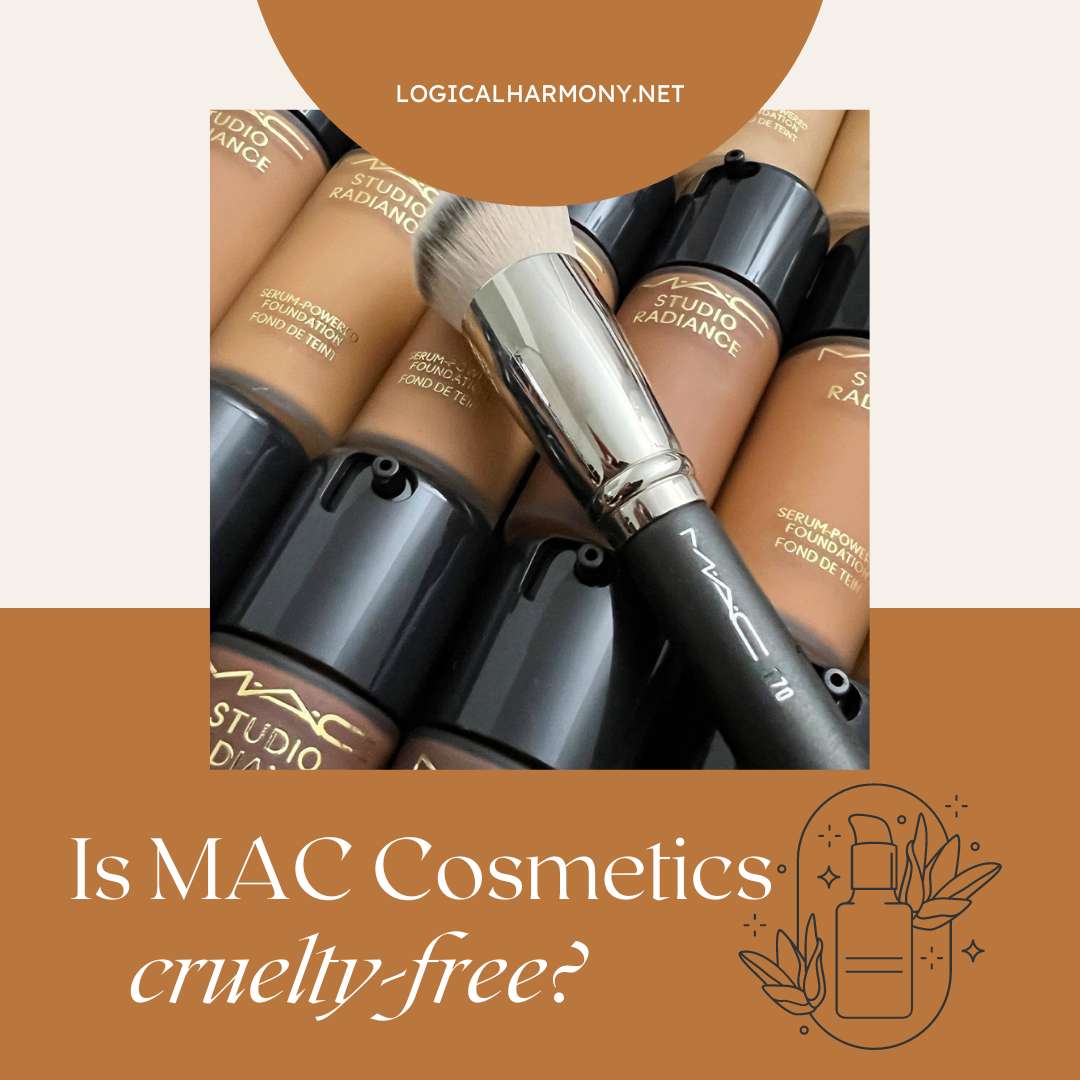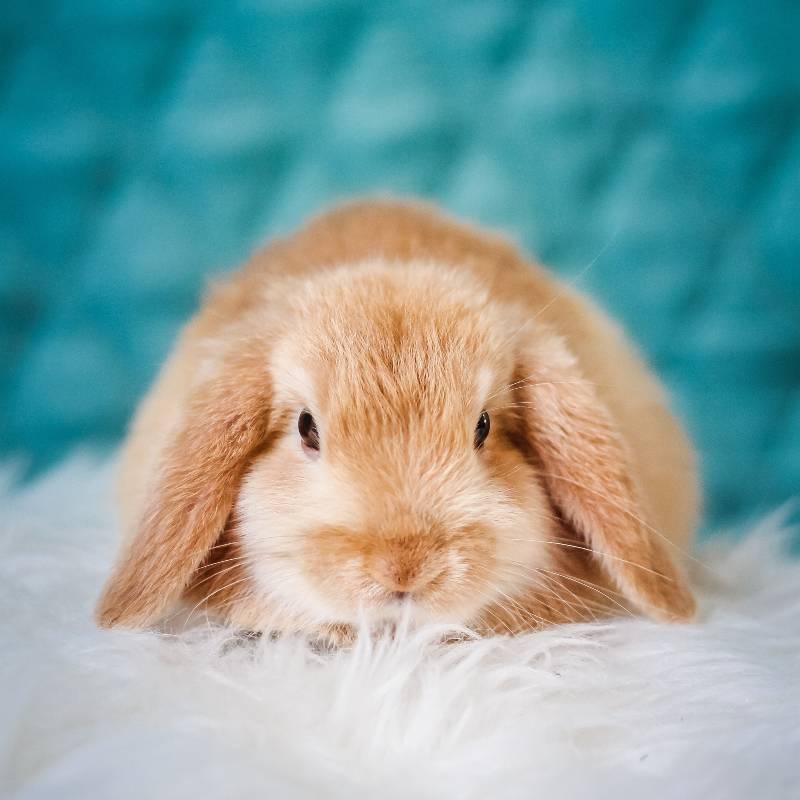Is MAC Cruelty-Free in 2023?

Does MAC Cosmetics test on animals? Their cruelty-free status remains confusing for many.
It seems like people are constantly confused about if MAC. This confusion is due in large part to the statement about animal testing on their FAQ page and how the brand is often represented in beauty stores and departments. They also heavily market themselves as cruelty-free and uses a statement to say that they do not test on animals in a lot of marketing materials. Flyers have even been seen in Ulta stores advertising that they are cruelty-free.
So what’s the deal? Is MAC actually cruelty-free? Does MAC still use animal testing? Does MAC have any vegan products? Let’s cut through all the noise together and find out.
Image via MAC on Instagram.
This post contains affiliate links, which means I may earn a small commission if you make a purchase through these links. I only recommend products and brands that align with my values and that I genuinely believe in. Your support through these links helps me to be able to create valuable content for you. Thank you for your support!
Is MAC cruelty-free? No.
MAC is not cruelty-free. They do not meet the standards to be a Logical Harmony Approved cruelty-free brand.
This cosmetics brand lost its cruelty-free status when it started testing on animals in 2012. Logical Harmony broke the news and it was a shock to many to learn that they were no longer cruelty-free.
Quick cruelty-free notes:
- CRUELTY-FREE: MAC is not cruelty-free.
- CERTIFICATIONS: None.
MAC Cosmetics does meet the criteria to be a Logical Harmony Approved cruelty-free brand. Being cruelty-free means that there is no animal testing occurring anywhere on their products. This starts with the ingredients used and extends all the way to the final product that you see for sale in your local stores. It also means that they are not selling in any markets that require animal testing either.
Use the Cruelty-Free Checklist:
- Are the ingredients used in MAC products tested on animals? Unclear.
- Are MAC products tested on animals during production? Unclear.
- Are MAC finished products tested on animals? Yes. As required by law in certain markets.
- Are MAC products sold in markets that require animal testing? Yes.
- Do any third-party groups test MAC products on animals? Yes.
- Does MAC have a parent company that tests on animals? Yes.
- Is MAC certified cruelty-free by any organizations? No.
Does MAC test on animals when required by law? Yes.
MAC does test on animals when required by law. While they may not be conducting animal testing themselves, they agree to any required by law animal testing to occur on their products. In these situations, there are ways to avoid animal testing. You can read more below.
Are MAC products sold in mainland China? Yes.
M.A.C. Products are sold in mainland China. The brand is very open about this. Currently, China requires animal testing to occur on finished products to be sold there for cosmetics. Despite rumors, China has not phased this requirement out for cosmetics completely.
Who owns MAC Cosmetics?
MAC Cosmetics does have a parent company. It is owned by Estee Lauder, who is not cruelty-free.
Are there MAC vegan options?
There are some vegan makeup options from M.A.C., but due to their animal testing policy I am not comfortable promoting them or sharing them. Vegan products are free of animal ingredients, animal byproducts, and animal-derived ingredients. Examples of these are lanolin, carmine, beeswax, honey, silk, collagen, and others.
Breaking down MAC’s animal testing policy
At an initial glance, the posted animal testing policy on their FAQ makes it appear as if they are cruelty-free. This is all most people read only the first sentence or two and they assume the brand is being clear and transparent.
“M·A·C does not test on animals. We do not own any animal testing facilities and we never ask others to test on animals for us. While some governments conduct animal testing to prove safety before they will allow us to sell our products, M·A·C has never tested on animals and we continue to be a leader in the movement to end animal testing globally. To this end, we are proud to partner with IIVS (INSTITUTE FOR IN VITRO SCIENCES) to expand the use and acceptance of non-animal testing methods worldwide.
Which countries require animal testing?
China tests on animals as part of its safety assessment of cosmetic products. We love our fans and we never want to exclude them anywhere.”
The statement above is very confusing for many. It does say that MAC sells in mainland China, it states that they don’t own any animal testing facilities, that they use alternative testing methods, and that they are funding research for animal testing alternatives.
It is great that MAC does take advantage of in vitro testing alternatives. Many brands do, cruelty-free or not, and it’s nice to see brands openly acknowledge these options.
Lots of brands, many cruelty-free and some that are not, are also helping to find alternatives to animal testing. This is a large issue in the cosmetics market and many brands are working towards this because they realize how quickly it will allow them to create new products and new formulations. They also understand the consumer demand for cruelty-free products.
A big takeaway from their paragraph is the following statement.
Some governments conduct animal testing to prove safety before they will allow us to sell our products.
– MAC FAQ page
What’s being left out is that while MAC is not conducting these animal tests themselves or in labs that they own, they are signing off and agreeing to these tests.
I am not aware of a single beauty brand that conducts animal testing themselves or that owns animal testing labs. Many use large facilities that are owned by other companies or government organizations. Animal testing in these facilities is called third-party animal testing because it is being done by a group that is not connected to the brand.
But the brands do know the animal testing is occurring. They are agreeing to submit their products to animal testing. And in almost all cases they are also paying for the animal tests to occur. I have been told by regulatory groups and several brands that it is made very clear to them that they are not only agreeing to animal testing, but that the business fees they pay to be in these markets are being used to cover the animal testing as well.
Keep in mind that FAQ pages are often marketing tools for brands and it is important to look at them critically. Brands can word things in tricky ways, leave out information, and avoid answering any questions they want. No matter how frequently they are asked.
With selling in mainland China, it is an unfortunate reality that it’s hard to avoid animal testing for cosmetics. However, it’s not impossible if done correctly.
How could they sell in China and stay cruelty-free?
Brands can sell via online sales only and skip being on store shelves (which is when animal testing is currently required by law). This means that products are still available to consumers in those regions. They just order them online.
They could also become certified as Leaping Bunny cruelty-free through Cruelty-Free International and join the Leaping Bunny pilot program there. When certified as cruelty-free through PETA there are ways they claim brands can avoid animal testing too.
Cruelty-Free Alternatives to MAC Cosmetics
There are a few cruelty-free makeup brands that make products that compare to MAC.
If you’re looking for cruelty-free replacements for your favorites, try Smashbox (parent company is not cruelty-free), Cover FX, MOB Beauty, NYX (parent company is not cruelty-free), or Kylie Cosmetics (parent company is not cruelty-free).
If you know of others, please comment and share. I’d love to add more brands to this list!
What can you do?
As a consumer, using your voice is important. There are several things that you can do:
- Support cruelty-free brands. There are SO many out there! Be sure to let them know that being cruelty-free matters to you. If you only purchase vegan products, also let them know that offering vegan options is important to you as well. Brands don’t know these things unless we tell them and it’s really important feedback for them to have.
- Let MAC know that you will no longer be supporting them and purchasing their products. Shoot them an email, a tweet, or leave them a Facebook or Instagram comment. Let them know that a brand being cruelty-free is important to you as a consumer, and since they are not cruelty-free they do not have your support.
- Share this post and help spread awareness. Cruelty-free beauty can be a confusing landscape, but helping share information helps everyone.
This post contains affiliate links, which means I may earn a small commission if you make a purchase through these links. I only recommend products and brands that align with my values and that I genuinely believe in. Your support through these links helps me to be able to create valuable content for you. Thank you for your support!

Don’t get this wrong …. I’m all for animal well being. But I have so many questions. Say China: they demand to test on animals so they can proof safety issues. Does that mean you can’t get cruelty free products in China whatsoever?? If that’s so, shouldn’t we be going for our governments???
THANK YOU for providing this information, it is very much appreciated. Your care and dedication are an inspiration to others, reminding people not to be lazy or complacent x
Just recently I went to Ulta and there was a flyer by Mac I took a picture of. It claims they don’t test on animals but forgets to add they’re sold in China!!! It makes me so made they are trying to spread this false info.
Thank you for this! I’m so happy to see it explained for people, I hate sneaky companies who try to wiggle around their CF status.
Thank you so much for making a post about this!!
It’s not that they aren’t making truthful statements, it’s that they are lying by omitting other key bits of information (that they have to agree to and pay for third party testing). They know it will cost them customers to be 100% up front about the way things go down.
Thank you for taking the time to break down MACs statements and show them for what they really are. I’m tired of these BS-filled, veiled statements by cosmetic companies. Sell in China or prioritize animal welfare–but don’t pretend like you can do both